When you turn the key and your car hesitates to start, it can be frustrating and leave you wondering what’s wrong. A sluggish car startup can be caused by a variety of factors, from minor issues to more serious problems. Understanding the potential causes and how to diagnose them is crucial to getting your car back on the road quickly.
This article will delve into common reasons why your car starts slow, how to identify them, and what solutions are available. We’ll cover everything from faulty batteries to engine problems, providing clear explanations and practical advice.
Common Causes of a Slow Car Startup
A sluggish car startup can be caused by various issues, including:
1. Battery Problems
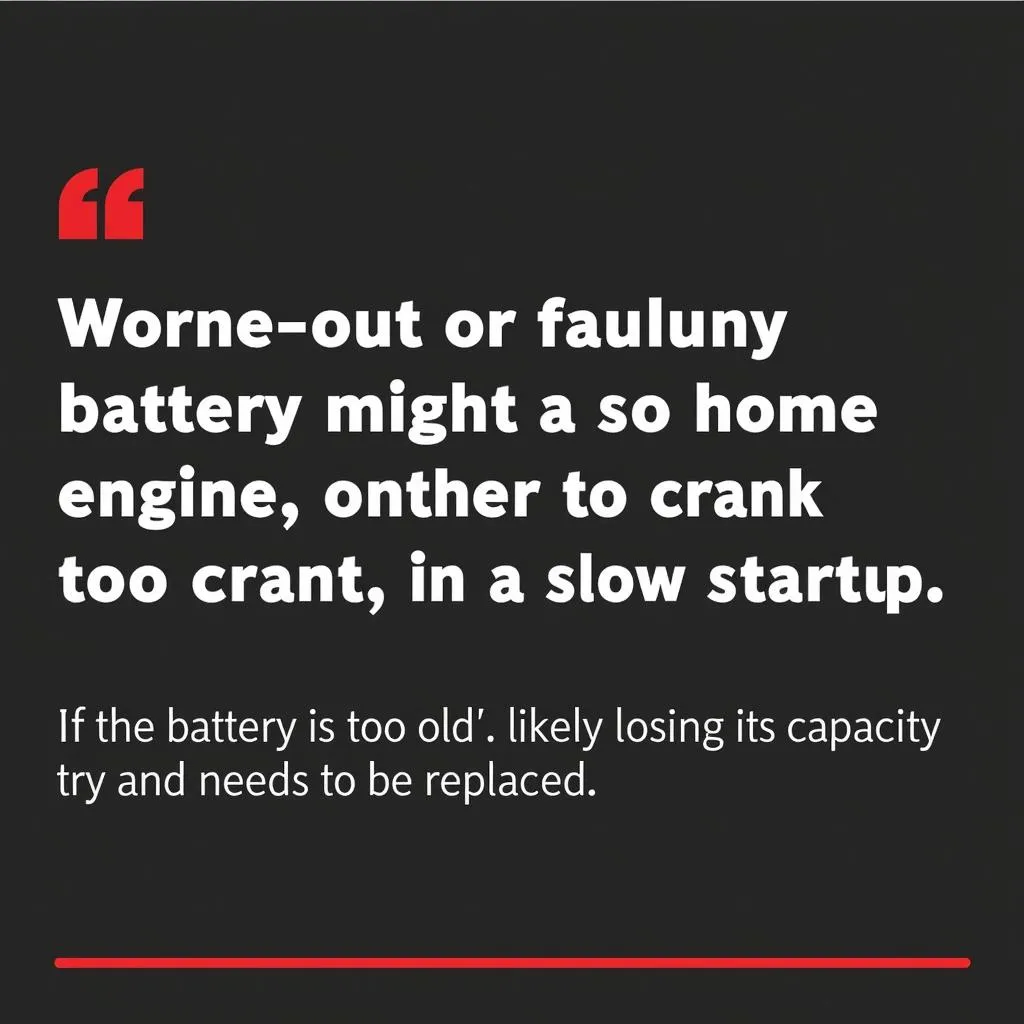 Battery problems can cause a slow car startup
Battery problems can cause a slow car startup
One of the most common culprits is a weak or dying battery. Over time, batteries lose their ability to hold a charge. If your battery is several years old, it might not be able to provide the necessary power to start the engine promptly.
2. Starter Issues
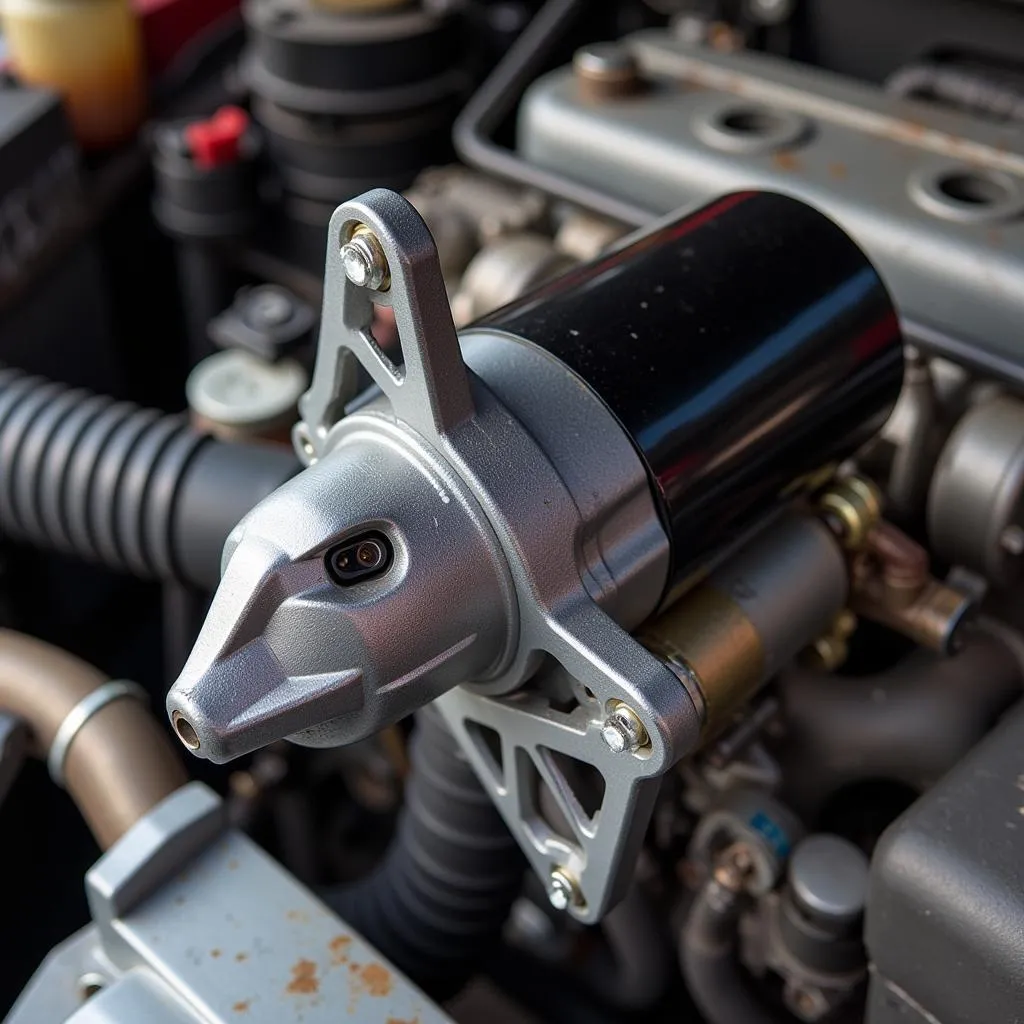 Starter issues can also cause a slow car startup
Starter issues can also cause a slow car startup
The starter motor is responsible for turning the engine crankshaft, which initiates the combustion cycle. If your starter is failing, it might not be strong enough to crank the engine quickly, leading to a sluggish startup.
3. Fuel System Problems
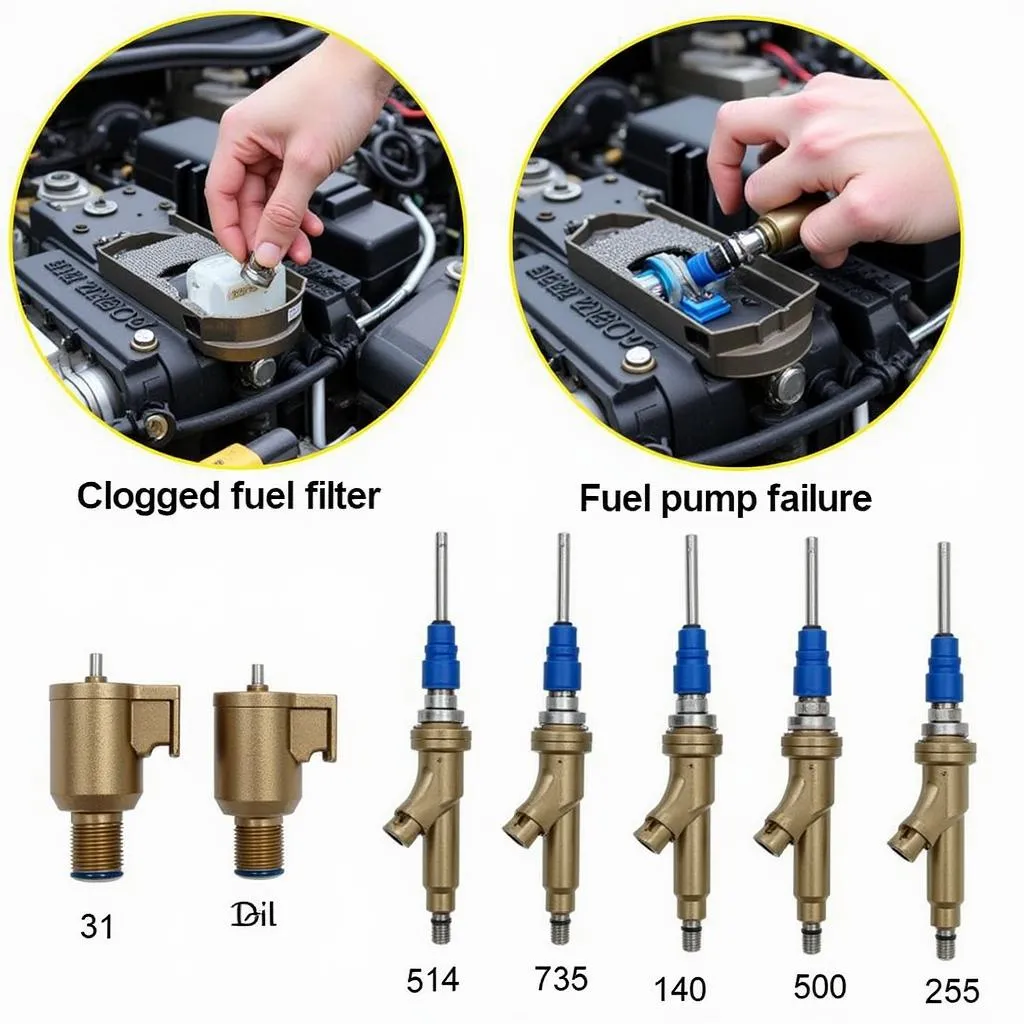 Fuel system problems can contribute to a slow car startup
Fuel system problems can contribute to a slow car startup
Your car’s fuel system plays a vital role in delivering fuel to the engine. If there are issues with the fuel filter, fuel pump, or injectors, the fuel supply to the engine might be compromised. This can result in a slow or difficult startup.
4. Spark Plug Problems
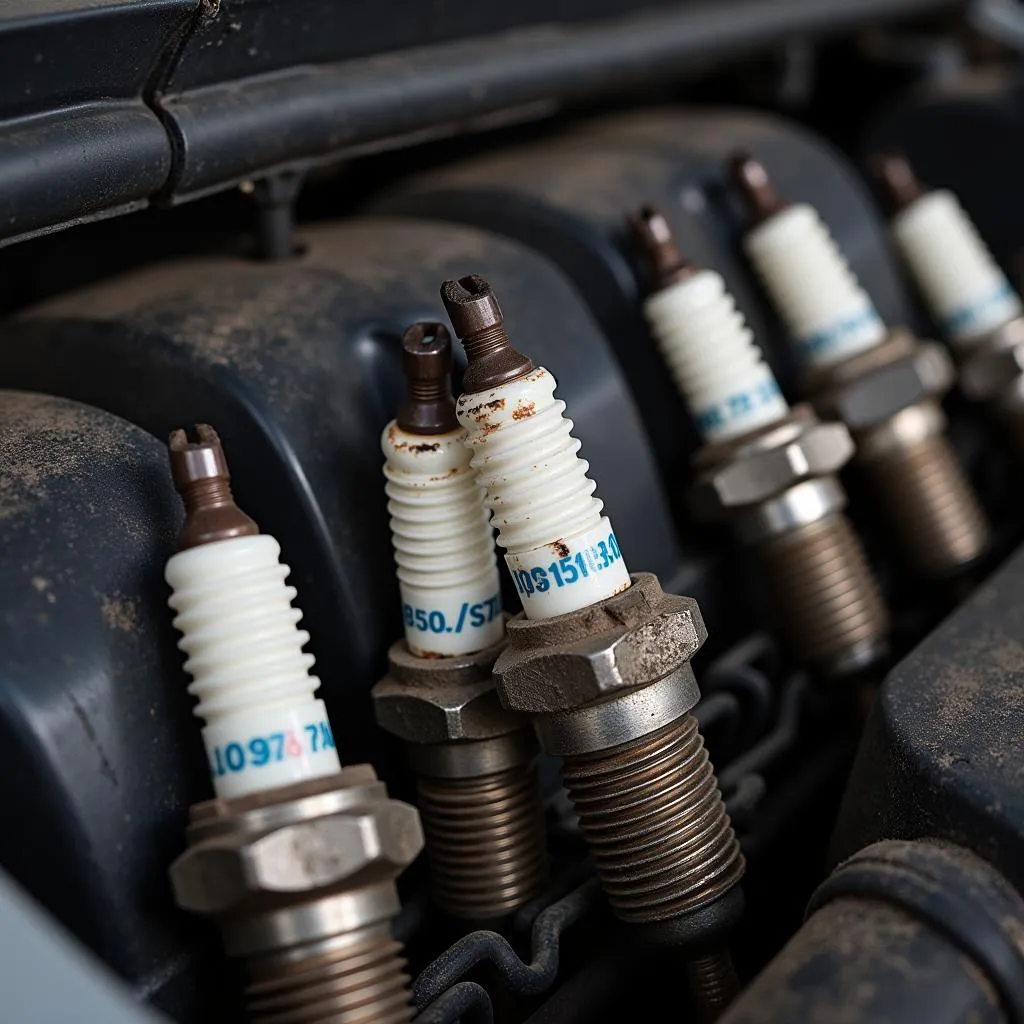 Spark plug problems can lead to a slow car startup
Spark plug problems can lead to a slow car startup
Spark plugs are responsible for igniting the fuel-air mixture in the engine’s cylinders. Over time, spark plugs can wear out or become fouled with deposits. This can lead to weak or inconsistent ignition, causing a slow startup.
5. Engine Oil Viscosity
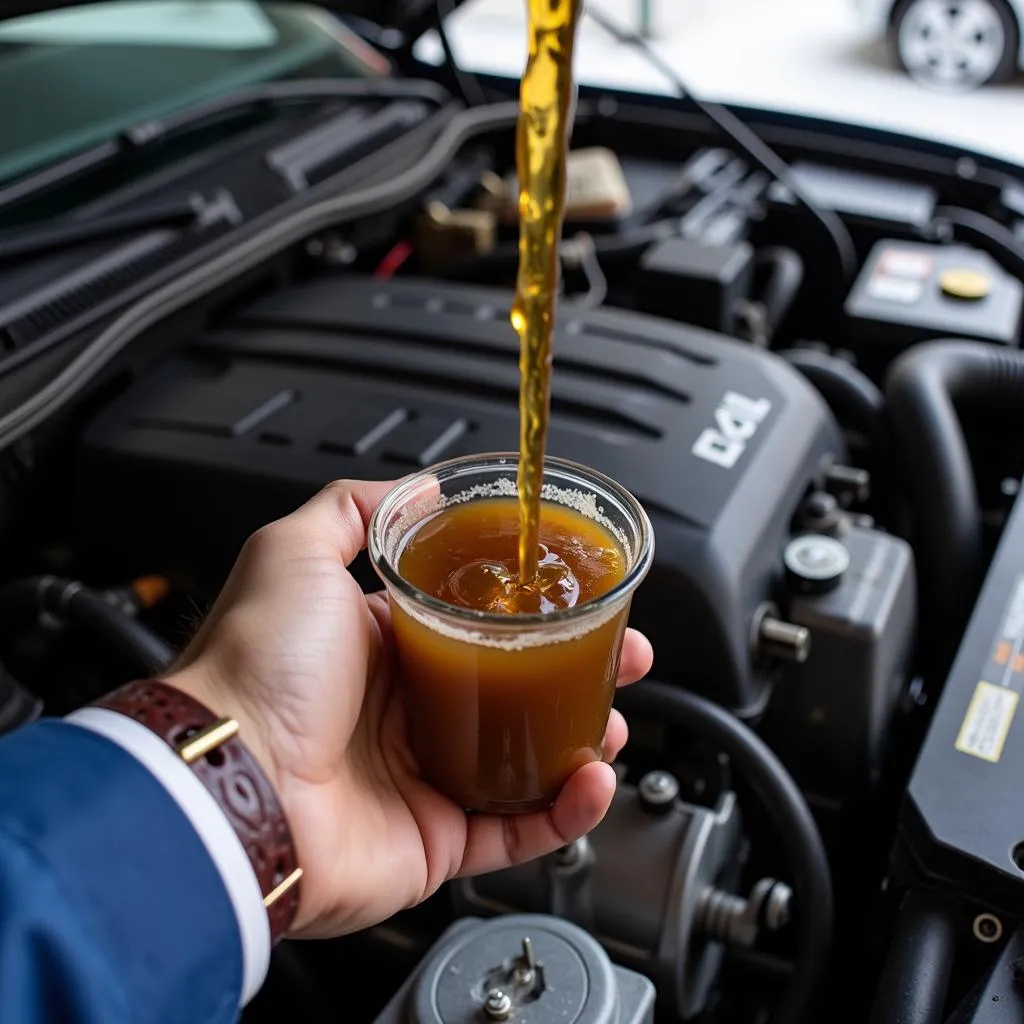 Engine oil viscosity can impact the starting process
Engine oil viscosity can impact the starting process
Engine oil lubricates moving parts and helps reduce friction. However, if the oil is too thick, especially in cold weather, it can create resistance during startup.
6. Air Intake Problems
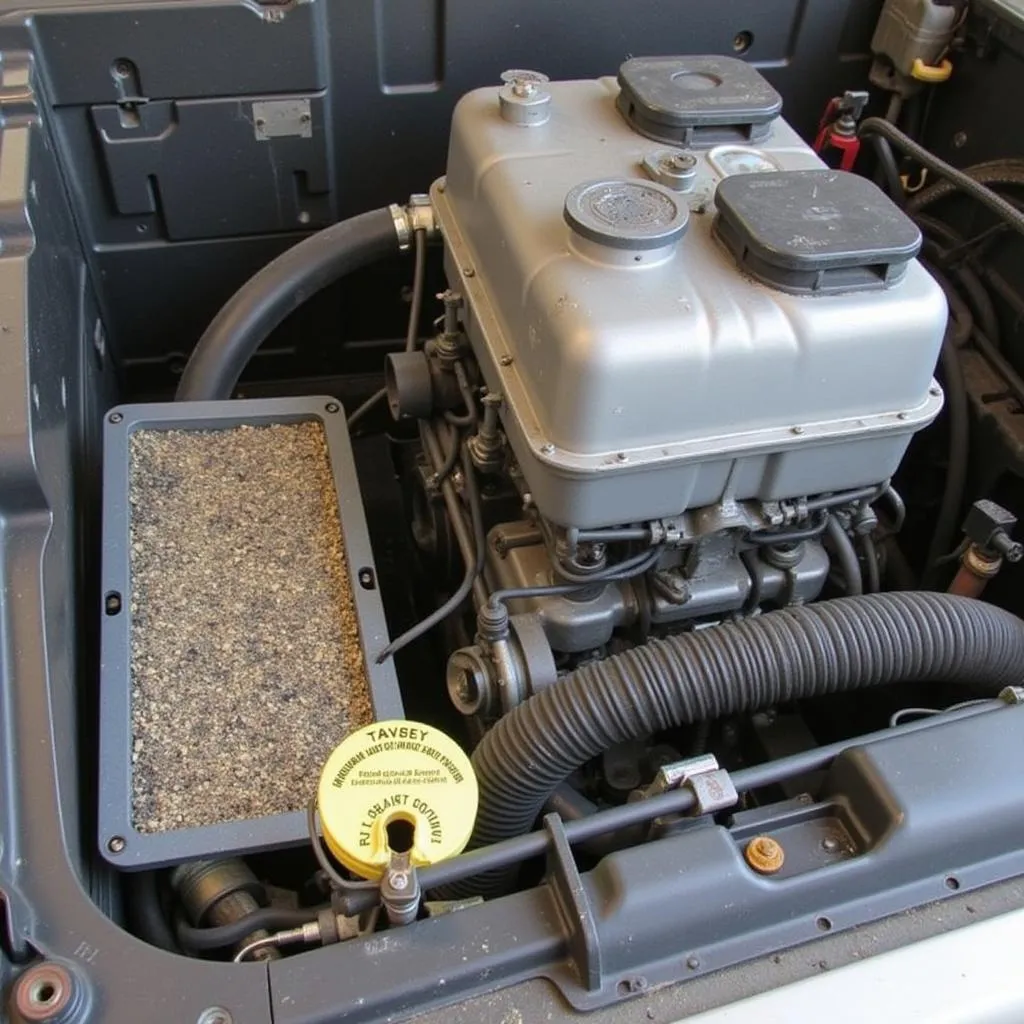 Air intake problems can disrupt the air-fuel mixture
Air intake problems can disrupt the air-fuel mixture
The air intake system delivers air to the engine. A clogged air filter or leaks in the system can affect the air-fuel mixture, leading to poor combustion and a sluggish startup.
Diagnosing a Slow Car Startup
If your car starts slowly, it’s crucial to diagnose the problem accurately to address it effectively. Here are some steps you can take:
- Check the Battery: Use a multimeter to measure the battery voltage. A fully charged battery should have a voltage of around 12.6 volts. If the voltage is low, it’s likely the battery needs to be replaced.
- Inspect the Starter: Listen for any unusual noises or grinding sounds coming from the starter motor when you turn the key. If you hear grinding or clicking sounds, it could indicate a faulty starter.
- Check the Fuel System: Check the fuel filter for clogs or debris. If the fuel pump is not working properly, you might hear a whining sound when you turn the key.
- Inspect Spark Plugs: Check the spark plugs for signs of wear, fouling, or gaps that are out of specification. Replace them if necessary.
- Verify Engine Oil Viscosity: Make sure you’re using the correct viscosity engine oil for your car’s climate and engine type.
- Inspect the Air Intake: Inspect the air filter for clogging and the air intake system for leaks.
Solutions for a Slow Car Startup
Once you’ve identified the cause of the sluggish startup, you can take appropriate action:
- Replace the Battery: If the battery is old or weak, replace it with a new one that meets your car’s specifications.
- Repair or Replace the Starter: If the starter is faulty, it may need to be repaired or replaced by a qualified mechanic.
- Clean or Replace the Fuel Filter: Clean or replace the fuel filter to ensure proper fuel flow.
- Replace Spark Plugs: Replace worn-out or fouled spark plugs with new ones.
- Change Engine Oil: If the engine oil is too thick, change it to the correct viscosity for your car.
- Clean or Replace the Air Filter: Clean or replace the air filter to ensure proper airflow to the engine.
Expert Insights
“A sluggish car startup can be a sign of various underlying issues, so it’s important to pinpoint the cause accurately,” says John Smith, a certified automotive technician with over 20 years of experience. “By following a systematic diagnostic process, you can identify the problem and address it efficiently.”
“Sometimes, a simple solution, like replacing a worn-out battery, can resolve the issue. Other times, a more complex problem, such as a faulty starter or fuel system issue, may require professional attention,” adds Jane Doe, an automotive specialist specializing in fuel system diagnostics.
FAQ
- Q: How often should I replace my car battery?
- A: The average lifespan of a car battery is 3 to 5 years. However, factors like driving conditions, climate, and battery maintenance can affect its lifespan.
- Q: Can a bad starter cause my car to start slowly?
- A: Yes, a faulty starter motor can lead to slow engine cranking and a sluggish startup.
- Q: How can I tell if my fuel filter needs to be replaced?
- A: A clogged fuel filter can restrict fuel flow, leading to slow or difficult starting. If your car has a fuel filter that’s been in service for a while, it’s a good idea to have it inspected or replaced.
- Q: What can I do about engine oil viscosity in cold weather?
- A: Using the proper engine oil viscosity for your climate is essential. In cold weather, consider switching to a thinner oil that flows better at low temperatures.
- Q: How do I know if my air filter is clogged?
- A: A clogged air filter can restrict airflow to the engine, making it difficult to start. Inspect the air filter regularly for signs of dirt and debris.
Conclusion
A sluggish car startup can be a frustrating experience, but it’s important to address the issue promptly to avoid potential engine damage. By understanding the common causes and following the diagnostic steps outlined above, you can identify the problem and take the necessary steps to restore your car’s starting performance. If you’re unsure about the cause or are unable to resolve the issue yourself, it’s always best to consult a qualified automotive technician.